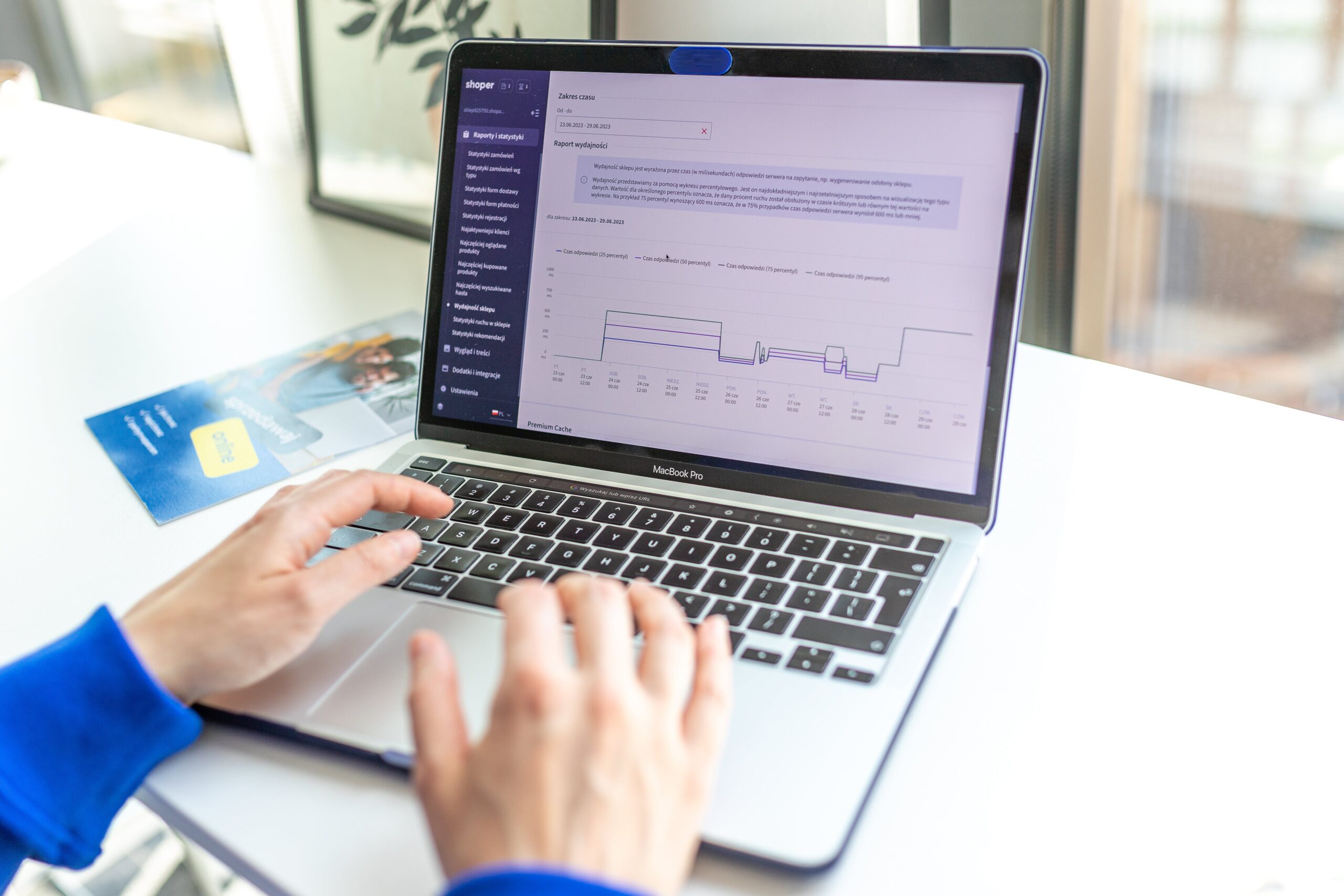Search engine optimisation and social media: how to boost your online visibility
Did you know that social media profiles consistently rank amongst the top of search engine results pages?
As much as 75% of customers use social media as a way of researching brands before making a purchase. They look for reviews, authentic recommendations, inspiration and information about brands. Social media profiles, therefore, should be optimised as part of your SEO strategy.
Social media can have a huge impact on your search rankings, but maybe not in the way you think.
We know that search engine optimisation is improving your visibility on Google and other search engines. You can do this through content marketing and other strategies. Social media, however, works a little bit differently.
Social media doesn’t affect your SEO in the same way as content marketing, for example. But it can impact the ranking factors that increase your visibility in Google search results. In other words, while social media efforts don’t influence SEO directly, they do influence SEO indirectly.
What does search engine optimisation mean and how it can be applied to your use of social media?
Web results are optimised because they are ordered based on how applicable they are to the keywords and phrasing used in your search, tailored to provide the best what you are looking for.
In an age where social media platforms generate a vast amount of search traffic, some social media sites can be considered search engines in their own right. It is therefore crucial that businesses utilise their social media presence to enhance brand visibility and connect with both recurring and new potential customers.
When you use search engines like Google, links to the most accurate, reliable, and relevant websites will appear at the top of the page because they best meet the criteria for EEAT.
This stands for:
- Experience
- Expertise
- Authoritativeness
- Trustworthiness
What are social signals?
Social signals can be used to interact with customers and consequently drive traffic to your website. Social media signals are activities that contribute to your page or website’s ranking factor. Some examples of a social signal include likes, shares, reposts, comments, and pinning.
What are the best social media platforms for SEO?
The social media platform you use should directly align with the type of business you have and your marketing goals. It should also be dependent on where your audience likes to spend their time, what they are interested in, and the demographic for how they self-identify. However, in terms of functionality for SEO, the following social media sites have numerous benefits:
YouTube
YouTube has become an established search engine for many, home to billions of videos spanning a huge variety of topics.
With tutorials, reviews, and helpful information, YouTube videos can promote your products and services to a widespread audience. Comment sections are buzzing with discussions and opinions that can generate organic traffic to your websites and share links to your other social media profiles.
This makes YouTube one of the best for SEO strategy because videos can include as many details as you desire without the worry of time constraints. Furthermore, due to the platform’s extreme popularity and Google’s ownership, many YouTube videos will often appear at the top of Google searches, making it a prime form of search engine organisation and a prominent way of generating social media engagement.
TikTok
If your primary audience includes millennials and Gen-Z, TikTok must be a primary focus for businesses to boost their search engine optimisation.
Boasting over a billion users, TikTok is a content goldmine for businesses as arguably the most trendy form of social media and one of the most significant social platforms to both entertain and inform.
Social media marketing can be utilised by including relevant keywords and hashtags in the description and tags, and popularity can be gained by following viral trends. In addition, since January 2024 Google has been working closely with TikTok due to its popularity, meaning TikTok’s jump to the top of Google search pages.
Dominating the online world on a global scale, this app can directly influence SEO through stimulating visual content produced in bite-sized clips that are easily digestible and compelling for your consumers.
On Facebook, you should add relevant keywords to your About page and description so customers can clearly find you and easily identify what you do. Social media users of all generations use Facebook, meaning your SEO efforts will not go to waste as they will reach a large audience.
Facebook also uses location pages, so creating social media accounts specifically for your designated locations and offices will help drive traffic and help your company stand out against other local businesses users may be browsing.
Populated with an immense amount of valuable content, Instagram optimises content to visually stimulate users. SEO tactics can be implemented by including target keywords in your company’s profile and bio in addition to tagging your location for increased awareness.
Posts should include keywords in the tags and description so your content will be highlighted to the social media algorithms and therefore maximise the amount of social accounts and relevant users it reaches.
LinkedIn helps you connect with other businesses and clients in the professional sphere and is a great way to share and generate ideas.
To promote your business, find relevant keywords to include on your page’s tagline and About section. Furthermore, reposting articles and blog posts you have written which include important keywords will greatly increase your search engine rankings as a result. This will highlight your experience and expertise from EEAT on a subject as a form of social media SEO strategy.
However, make sure you don’t overstuff your writing with keywords or LinkedIn will disregard it as produced by a bot, so write naturally to make it certain that your social media promotes SEO best practices.
Pinterest is the hub for aesthetically pleasing images and is an incredibly useful app for drawing inspiration from, so many will use it as a tool when conducting a visual search.
Use high-quality images to attract consumers and make sure that the image description links back to your web page, as well as including your company name and keywords in your About section and username.
This will ensure brand recognition as images can easily and quickly be traced back to you. Pin titles should additionally use long-tail keywords as this is one of the most reliable SEO techniques because people are more likely to do search inquiries in full sentences.
For example, “How to write an article using SEO” will generate results with a tutorial instead of simply searching “SEO” which will result in much broader and unspecific website content.
4 ways to boost your social media SEO efforts
We’ve established how social media impacts SEO. Now, we can look at ways to boost SEO through social media marketing. Here are some practical ways to boost SEO using your social media platforms.
Optimised social profiles
Optimised profiles can drive your target audience to your account and convert them into customers. Here are some easy ways of optimising your social profiles to get results:
- Use a high-quality profile picture
- Include a link to your website and other social links
- Update your bio with clear information
- Conduct keyword research and add them to your bio
- Use hashtags
Good profiles build trust by adding credibility to your brand. They should tell your potential customers everything they need to know about your business within a few seconds. Your profile should sound natural and authentic and show off your unique personality.
Publish high-quality content
Creating and publishing high-quality content is incredibly vital. It can drive organic traffic to your website, increase search visibility and help you gain quality backlinks.
Search engines and shareable content go together like bread and butter. The more people that engage with and share your content through social media links, the wider reach you’ll have. You’ll also generate more backlinks, or inbound links, and enhance brand recognition.
By distributing a high-quality blog post, for example, via your LinkedIn social media account, you can encourage your social media followers to share your content further. This will boost your content marketing strategy and strengthen your social signals by amplifying reach.
When you publish content that your audience will want to share, it can help Google with the indexation of your posts. This can lead to more organic searches and better Google rankings.
Use optimised images
Did you know that the images you upload to social media can make a difference to your SEO?
Image optimisation refers to the process of making the pictures you upload alongside your social media posts as SEO-friendly as possible.
Optimising the images across your social media accounts can improve user experience and make your page speed quicker. Search algorithms also tend to prioritise the pictures that follow best practices. Here’s how it’s done:
- Adhere to the right size and resolution for the specific social media channels you’re using.
- Choose a good aspect ratio and image format for the image.
- Incorporate targeted keywords in the file name.
- Write alt text for the image with relevant keywords.
Optimising images across all your social channels is a relatively easy process that can make a significant difference to your social media marketing efforts. A high-quality image is also more likely to increase your overall social media performance. It can make your brand look more attractive, understandable, relatable and memorable.
Use social listening
One strong tactic for reinforcing your SEO and social media strategy is to use social listening.
This is the process of monitoring online conversations on social media networks to learn what your audience is saying about you. It’s also a great way to keep track of your competitors.
Social listening can help you find opportunities for link-building. For example, you might find that someone has mentioned your brand on blogs, forums, and news sites. Using a social media monitoring tool, you can locate these mentions contact the authors and ask them to add a link to your site.
Positive refereeing links can be a great signal, especially because websites with an excellent and trusted domain authority referencing your work will in turn increase the domain authority of your website and promote your brand’s visibility.
Social listening is a powerful way to conduct audience research and help you find out what people are saying about your industry. This will help you find new opportunities to reach your target audience and raise your social media presence.
Social media helps SEO in several different ways. The best method is always the successful combination of social media and search engine optimisation efforts. Social media SEO strategies represent how imperatively social signals matter, and how utilising keywords and creating clear, eye-catching, informative social posts positively impact the indirect and direct ranking factors of your SEO.
Contact our team at AMBITIOUS if you have any queries and want to make the most of your social SEO.











